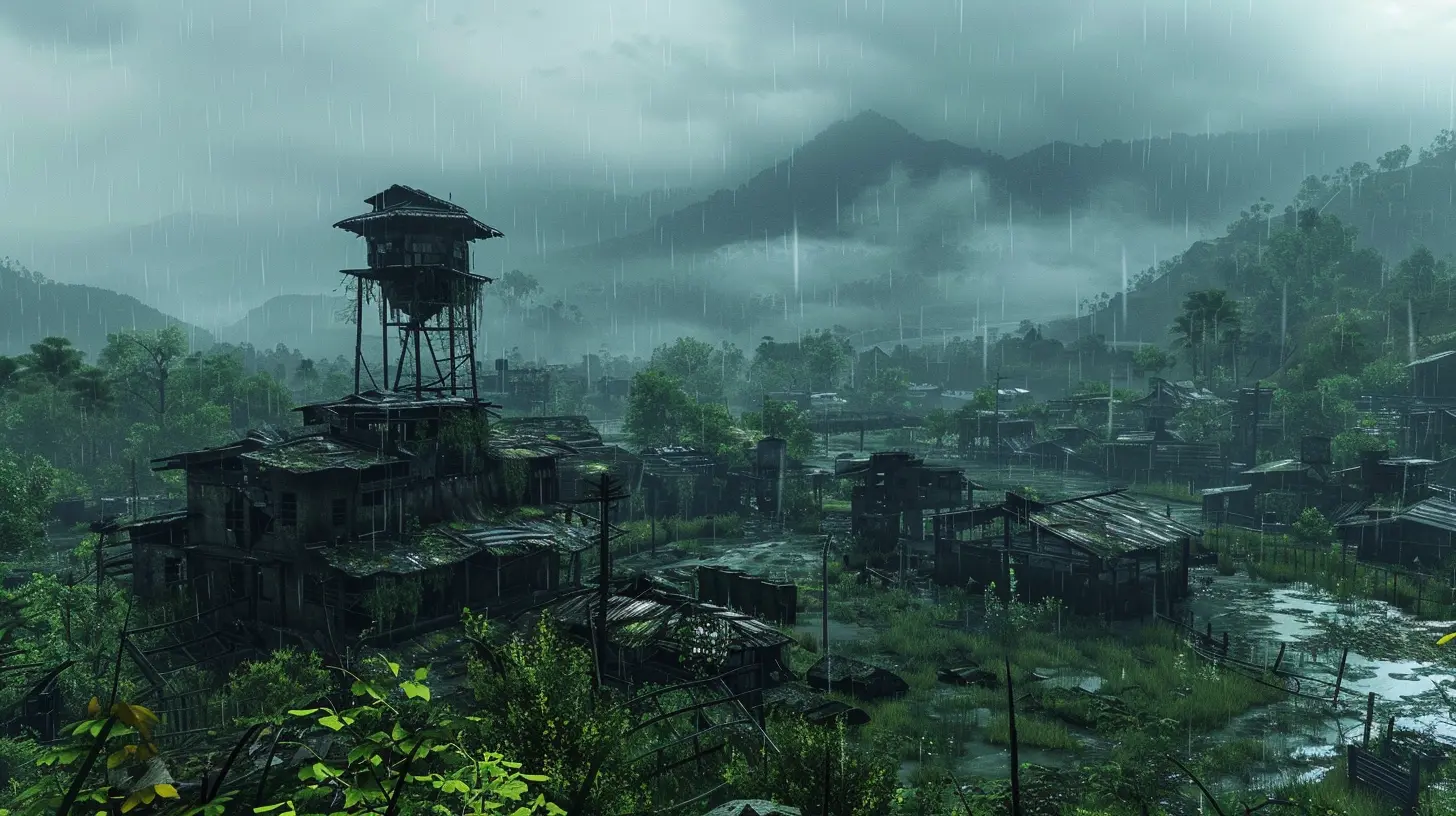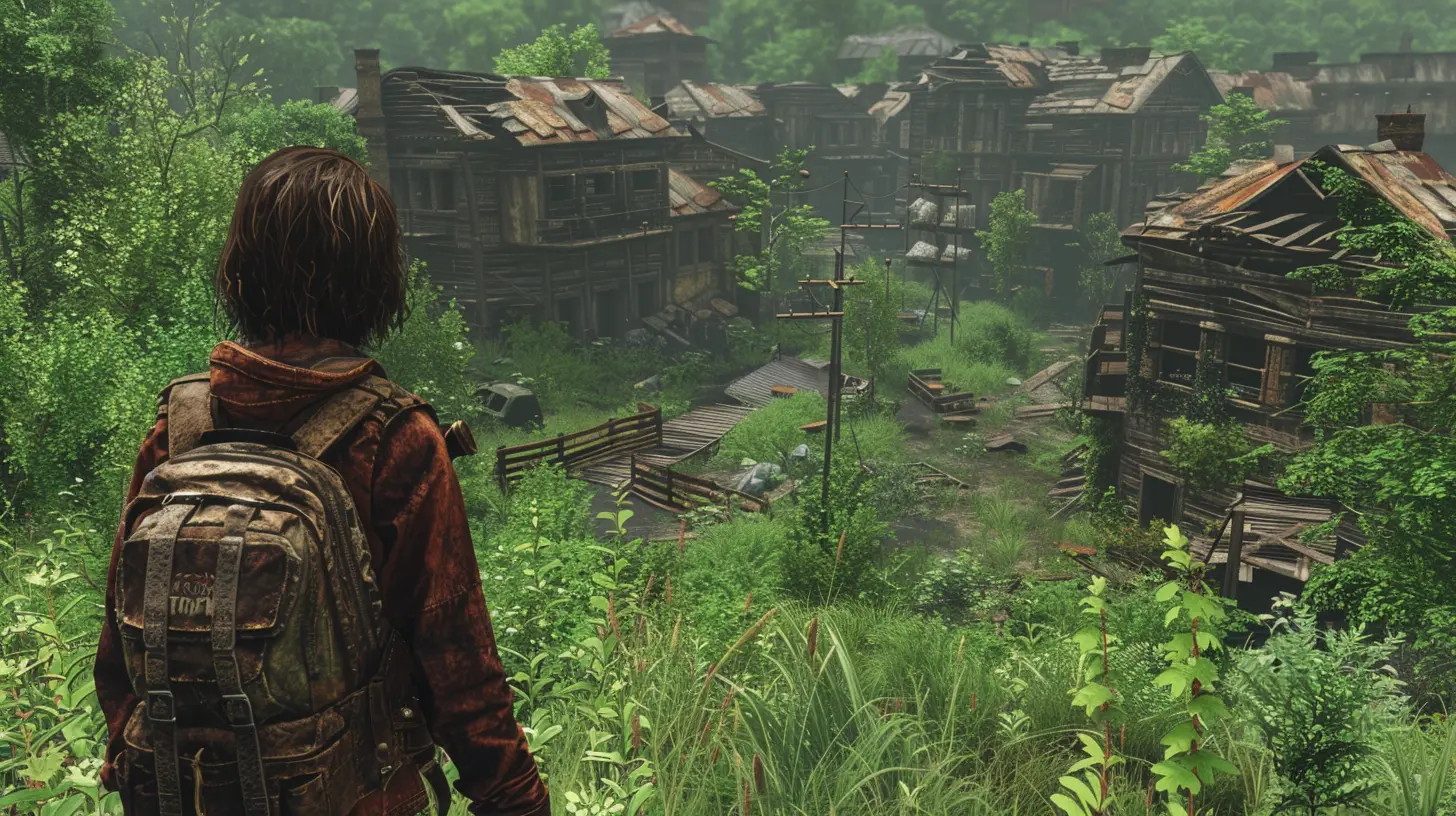On-Edge: Maintaining Vigilance and Awareness in Survival Games
18 July 2025
Survival games are a genre unlike any other. They drop you into a world where everything feels hostile, resources are scarce, and danger lurks around every corner. It’s not about running in guns blazing or racking up the highest score—this is about staying alive, plain and simple. But surviving isn't just about hoarding supplies or crafting tools; it's about being sharp, adaptable, and vigilant.
Do you ever feel that rush of adrenaline when the screen starts dimming because your character is freezing to death, or when a sudden growl tells you a predator is on your tail? That, my friend, is survival at its finest. In this article, we're diving into how maintaining vigilance and awareness can make or break your experience in survival games. Buckle up—it’s about to get intense.
Why Vigilance Matters in Survival Games
Think about it: survival games are basically digital simulations of the "fight or flight" response. Whether you're scavenging for food, hiding from predators, or building a shelter to weather a storm, the core of these games is all about reacting to your environment. Staying vigilant is the key to mastering the experience.Without vigilance, you’ll miss the rustling bushes signaling a predator. You’ll walk right past that vital herb you need to craft a healing potion. Or worse, you’ll wander into a trap that was super obvious if only you’d paid attention. Being on-edge isn’t a bad thing here—it’s your lifeline.
Understanding the "On-Edge" Mindset
Being "on-edge" doesn't mean panicking. It means staying alert, analyzing your surroundings, and always being a step ahead. Think of it like this: survival games reward players who think like chess players. You’re always observing, always planning two or three moves ahead.Here are a few elements that make up the "on-edge" mindset:
1. Observation Is Everything
In the wilderness of a survival game, your eyes and ears are your best friends. A snapped twig could mean a lurking enemy. A faint glow in the distance might lead to valuable resources. Your ability to notice even the smallest details can mean the difference between survival and a brutal death.Pro tip: If the game offers a "listen mode" or environmental cues, USE THEM. Many developers sneak in audio or visual hints to make your life easier. Ignoring them? That’s rookie behavior.
2. Don’t Just React—Anticipate
Let’s face it, a lot of survival games are designed to mess with you. Day turns to night? Boom, the enemies are suddenly twice as aggressive. Water levels getting low? Of course, the nearest pond is swarming with hostile creatures.Stay ahead of the game by expecting these challenges. If your food supplies are stocked, start hunting for water. If the weather’s looking bad, fortify your shelter before the storm hits. Always think, “What’s the next problem I’ll face, and how can I prepare for it now?”
3. Risk vs. Reward
Every decision in a survival game comes with a risk. Heading into that abandoned building could mean scoring life-saving supplies—or running into a deadly ambush. Staying vigilant means knowing when to take the leap and when to play it safe. A good rule of thumb? If you’re unprepared (low health, no weapons, inventory full of junk), you might want to back off. Survival isn’t about flexing—it’s about staying alive.
How Survival Games Train Your Real-World Awareness
Okay, hear me out: some people say video games rot your brain, but survival games? They do the exact opposite. If anything, they teach you how to be more aware in the real world.1. Situational Awareness
Survival games force you to assess your surroundings constantly, and that skill translates to real life surprisingly well. Ever notice how seasoned gamers can spot small details that others miss, like someone subtly tailing them on a busy street or spotting their wallet at a glance in a messy room? That’s situational awareness in action.2. Resource Management
Anyone who’s played survival games knows the pain of running out of resources at the worst possible time. This awareness of "limited supplies" often spills over into daily life. You start packing just enough snacks for a long trip or think twice about how you spend your time. Weird, right?
Tips for Staying Vigilant in Survival Games
You didn’t come here just for theories—you want tactics, right? Let’s break down some practical tips you can use to sharpen your survival skills.1. Study the Map Like a Hawk
If your game has a map, it’s not there for decoration. Memorize key landmarks, resource spawn points, and areas to avoid. The more you know about the terrain, the less likely you are to wander aimlessly into danger.2. Learn Enemy Patterns
Most enemies in survival games have predictable behaviors. Wolves might howl before attacking. Zombies might shuffle slowly until they spot you, then break into a sprint. Pay attention and use that info to your advantage.3. Always Have an Exit Plan
Whether you're scavenging loot or exploring a new area, always know how to get out in a pinch. Maybe it’s a hidden back door, a nearby body of water, or even just a straight sprint toward safety. Whatever it is, knowing your escape route could save your life.4. Inventory Management Is Key
You don’t need to be a hoarder. Carry what you actually need—maybe a weapon, healing items, food, and a crafting tool. Overloading your inventory with useless junk will only slow you down when it counts.5. Take a Breather
Here’s the thing about vigilance—it’s exhausting. If you’re always on-edge, you might miss something important because you’re mentally fried. So, take a moment to relax (in a safe spot, obviously). Breathe, refocus, and dive back in when you're ready.Games That Highlight Vigilance
Not all survival games are created equal. Some really manage to hammer home the importance of staying sharp. Here are a few that deserve a special mention:1. The Forest
A plane crash, a mysterious forest, and cannibalistic mutants? This game thrives on keeping you paranoid. Vigilance is your best friend here—those eerie noises are rarely just for show.2. DayZ
Other players might say they’re friendly, but let your guard down, and you’ll find yourself looted faster than you can blink. The combination of zombies and unpredictable human behavior makes this a brutal lesson in staying alert.3. Subnautica
Exploring alien oceans is stunning—until you realize the shadows beneath you are hiding a Leviathan. Being aware of your surroundings is the only thing keeping you from becoming lunch.4. Don’t Starve
The stylized graphics might fool you, but this game is ruthless. Between starving, freezing, and being eaten alive, you’ll quickly learn the value of constantly monitoring your situation.The Psychological Thrill of Staying on Edge
Ever wonder why survival games make your heart pound? It’s because they tap into raw human instincts. When you’re fully immersed, your body reacts like you’re actually there. Your pulse quickens, your palms sweat, and your brain goes into overdrive. But here’s the funny thing: we love it.That tension is what keeps us coming back. Survival games remind us what it’s like to feel something deeply—even if it’s just in a virtual world. That thrill of outsmarting danger? Pure dopamine, baby.
Wrapping It Up
Survival games are more than just entertainment—they’re a test of your vigilance, adaptability, and grit. Staying on-edge doesn’t mean being paranoid; it means being prepared, focused, and one step ahead of whatever the game throws your way. The next time you’re immersed in a survival game, take a moment to appreciate the layers of strategy and awareness it demands. It’s not just a game—it’s survival of the fittest.all images in this post were generated using AI tools
Category:
Survival GamesAuthor:

Tina Fisher
Discussion
rate this article
2 comments
Aubrey McCloud
Stay alert and embrace the challenge—every moment in survival games is an opportunity for growth!
December 4, 2025 at 5:34 AM
Colt Dodson
Insightful read, thank you!
July 25, 2025 at 4:48 AM

Tina Fisher
Thank you! I'm glad you found it insightful!


